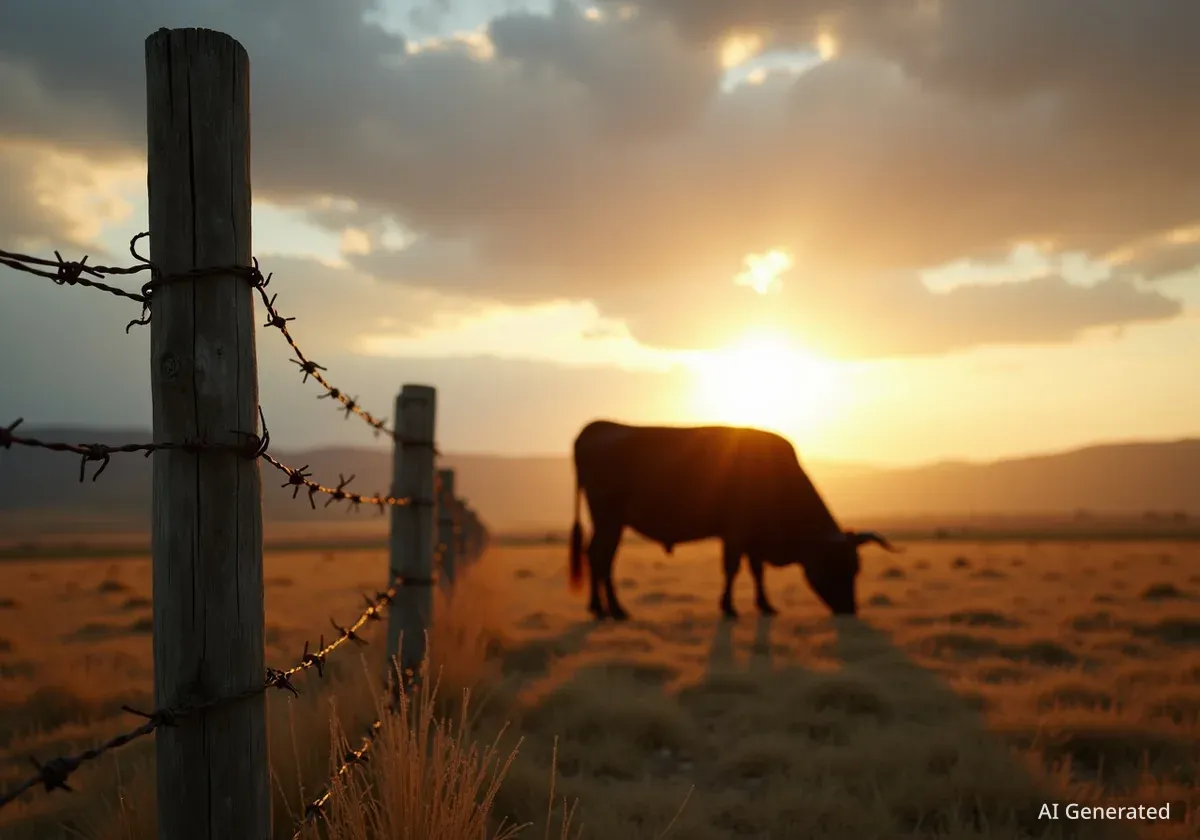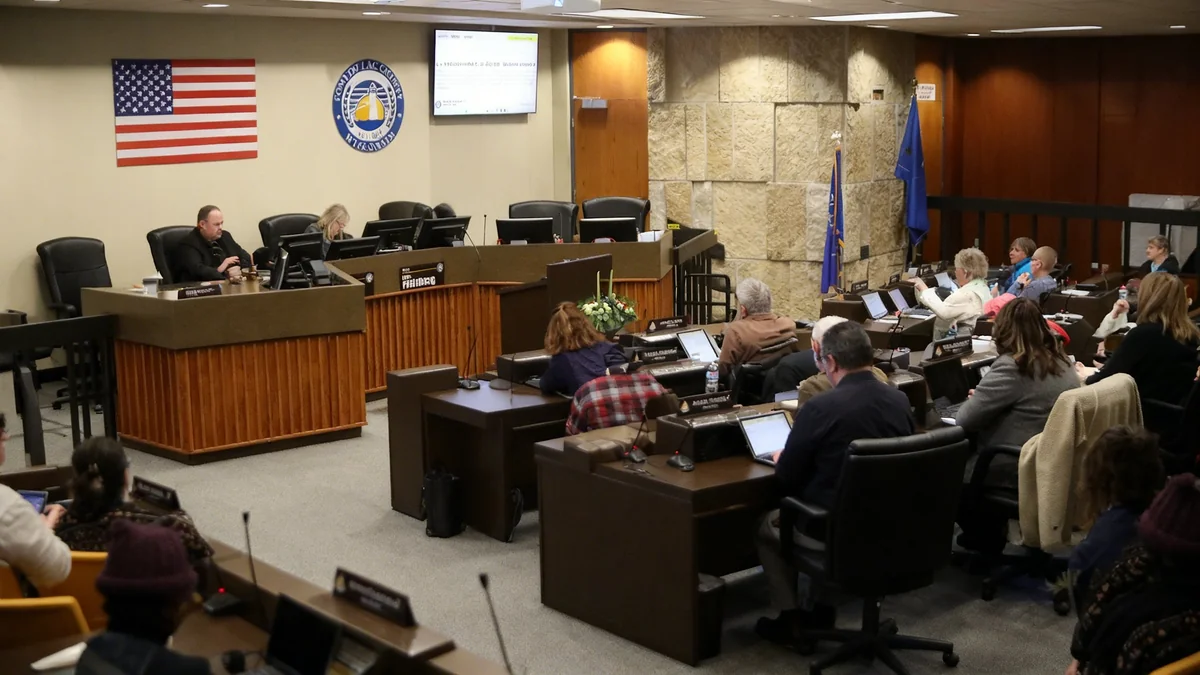A proposal by former President Donald Trump to increase beef imports from Argentina as a measure to lower consumer prices has triggered a wave of condemnation from U.S. agricultural organizations. Farm groups, spanning the political spectrum, have united in opposition, warning of severe economic consequences for domestic cattle producers who are already navigating a volatile market.
The suggestion has sent ripples through the commodities market, contributing to negative trends in cattle futures and prompting industry leaders to call for government non-intervention. U.S. Senator Joni Ernst has weighed in on the issue, highlighting the concerns of her constituents in agricultural states like Iowa.
Key Takeaways
- A proposal to increase beef imports from Argentina is facing unified opposition from major U.S. farm groups.
- Organizations including the Farm Bureau and the National Farmers Union have voiced strong objections.
- The announcement has negatively impacted the cattle futures market, creating financial uncertainty for producers.
- The Iowa Cattlemen’s Association has called the plan harmful and urged the government to allow the market to function without intervention.
Widespread Industry Opposition
The reaction from the agricultural sector was swift and unequivocal. In a rare display of unity, organizations that often find themselves on opposite sides of the political aisle have presented a united front against the import plan. Both the traditionally conservative Farm Bureau and the more left-leaning National Farmers Union have publicly stated their opposition.
These groups argue that flooding the market with foreign beef would artificially depress prices, directly harming the livelihoods of American ranchers. They contend that such a move would undermine the domestic supply chain and create long-term instability for a critical sector of the U.S. economy.
The Economic Fallout
The mere discussion of increasing beef imports has already had a tangible financial impact. Traders in the commodities market reacted negatively to the news, causing a dip in cattle futures. This market volatility directly affects the profitability of cattle operations, as producers rely on stable futures pricing to make critical business decisions about their herds.
The Iowa Cattlemen’s Association, a key voice for producers in one of the nation's top cattle-producing states, issued a forceful statement condemning the proposal. The organization's CEO, Brian Whaley, articulated the industry's frustration.
"The administration continues to create undue harm to U.S. cattle producers, inhibiting their ability to make smart marketing decisions that directly impact their long-term profitability," Whaley stated.
The association is pleading for a hands-off approach, asking the government to avoid market intervention and allow supply and demand principles to function naturally.
Understanding the Cattle Market
The U.S. cattle market is a complex ecosystem influenced by feed costs, weather patterns, consumer demand, and international trade policies. Producers often use the futures market to lock in prices for their cattle months in advance, providing a hedge against price fluctuations. Sudden policy announcements can disrupt this delicate balance, creating immediate financial losses and long-term uncertainty.
Political Dimensions and Producer Concerns
The issue has drawn attention from lawmakers in agricultural states. U.S. Senator Joni Ernst of Iowa addressed the topic during a recent farm broadcast, acknowledging the widespread anxiety among her state's producers. The political debate centers on balancing consumer prices with the economic health of the domestic farm industry.
While the stated goal of the import proposal is to provide relief to consumers facing high beef prices at the grocery store, producers argue it is a short-sighted solution with devastating consequences. They maintain that a healthy domestic cattle industry is the best long-term guarantee of a stable and affordable beef supply.
A Unified Voice
The coalition of opposing farm groups represents millions of farmers and ranchers across the United States. Their unified stance underscores the perceived severity of the threat that increased foreign imports pose to the domestic agricultural economy.
The Argument Against Intervention
Industry leaders like Brian Whaley are championing a free-market approach. Their core argument is that government intervention, particularly through trade policy aimed at manipulating prices, distorts the market and prevents producers from operating effectively.
Ranchers make multi-year investments based on market projections. Unpredictable government actions can nullify these strategies, leading to significant financial losses. The call from the Iowa Cattlemen's Association is for stability and predictability, allowing producers to manage their businesses based on market fundamentals rather than political whims.
The ongoing debate highlights the delicate balance between international trade, domestic economic policy, and the livelihoods of thousands of American families who form the backbone of the nation's food supply.




